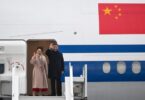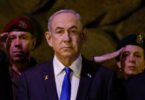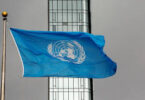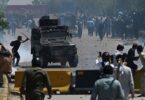Hu Zhiyong
The official website of the Ministry of Defence of India on Tuesday reported that Indian Chief of Army Staff Gen MM Naravane visited border area near China on the same day he reviewed the operational situation. Naravane interacted with the troops and complimented them for their steadfastness and high morale; for being deployed in some of the harshest terrain, altitude and weather conditions.
Brahma Chellaney, a New Delhi-based geo-strat-egist and author, interpreted Naravane’s visit on Twitter, “When India was battling the first COVID wave,” China sent the People’s Liberation Army (PLA) a year ago to “stealthily occupy key border areas.” He continued that if China “similarly exploits India’s far-worse second wave to seize more land, it will bring double shame on the country. The Army chief is seeking to avert that.”
This reflects the mind-set of most top officials in India. Every time when there is a major economic or public crisis at home, top officials of the Indian government or Indian Army tend to fabricate external frictions or hot-spot issues to divert the attention of the public. Such strategic manner is irrational and immature and explains why their people are being overwhelmed by the epidemic there. In the face of the tsunami-like second COVID-19 wave, Naravane’s visit to disputed border areas can also be classified into such patterns. India’s political elites intend to play up “China threat” and show the strength of their army. Nonetheless, when the second wave of COVID-19 became fierce in India, China has expressed its willingness to engage in possible cooperation with India to fight the virus. But as anti-China sentiment goes on in India, some Indians have expressed their objections against China’s help.
This is partly because the culture of India is different from China. From the perspective of Chinese culture, if one is in need, all others will help. Therefore, when the situation in India turned severe, China timely expressed its will to lend a helping hand. However, some Indians have taken for granted that the assistance from a “rival” country is meant to humiliate them. Furthermore, many Indians believe their country is a great power that doesn’t need any help from their rival. Such a mentality has severely hindered Indians from taking enough measures to contain the virus and remedy relations between India and China.
In regard to fighting against the virus, China’s experience deserves India’s attention. Additionally, India’s manufacturing capacity is restricted. Currently, it is heavily short of anti-epidemic supplies such as oxygenerators. China is capable of producing equipment that India needs to quench the country’s thirst. But New Delhi is reluctant to accept China’s good will. It is seeking so-called like-minded partners like the US. Yet Washington was reluctant to offer a helping hand and was only forced to do so under pressure. India is going on a detour that will probably hold back its epidemic fight.
It is regrettable that relations between China and India may deteriorate further as the COVID-19 epidemic continues to be mishandled in India — with India’s top officials likely to further manipulate public opinion to make China a scapegoat. The Indian government may continue to play up the “China threat” and fan nationalism within the country. It may also play up the India-China border issue in order to divert attention at home. This being the case, the pros-pects for China-India relations are hard to be bright.






